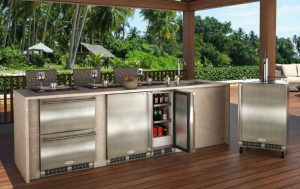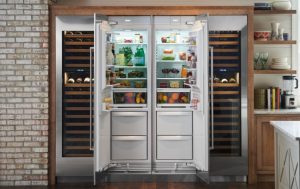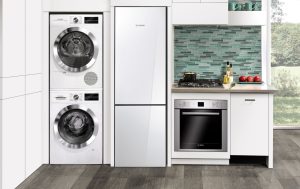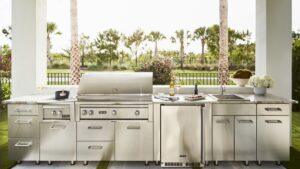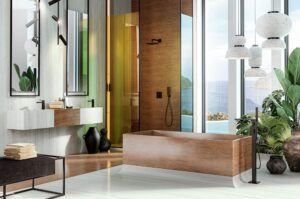Top Tips for Storing Your Wine
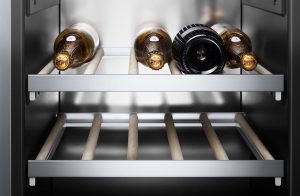
Most of us enjoy a glass of wine to relax after a tough day, but if you start to become a real wine lover, you’ll need to ensure that you store your bottles properly. Improperly stored wine can suffer from oxidation and lose some of that bouquet and body. So, here we have some top tips to help you store your wine like a PRO.
Understand the Proper Storage Temperatures
If you have a bottle of cheap white, it is easy to pop it in the refrigerator, but serious wine lovers need to understand the proper storage temperatures. The temperature can dramatically affect the smell and taste of your wine, and if you want to keep those spicy, fruity aromas, when you pour a glass, you need to understand the correct storage temperatures. Generally, sweet wines should be stored at 42ºf for whites, and Rose’ at 50ºf while Reds at 54ºf. These are a good guideline for most wines, but some others require a little more care. For example, Champagne should be stored at 46ºf, while Port should be kept at 60ºf. For the optimal serving temperatures, you should not allow your wine to hit temperatures above 55ºf for whites and 68ºf for reds.
Consider Humidity
While the proper temperature is critical, you also need to consider the humidity levels. The correct humidity is tied directly to the wine corks, particularly in long-term storage. If the humidity is too low, your wine corks can dry out; compromising the seal and allowing the wine to age prematurely. Even if the seal does remain intact, when you open the bottle, the cork is likely to crumble and create a very frustrating experience. If the humidity levels are too high, the corks may become vulnerable to mold or mildew that will impact the quality of the wine.
While metal, plastic or glass closures don’t particularly benefit from humidity, they are not usually adversely affected, but since most age-worthy wines are still bottled with a cork, you need to consider your humidity levels. Generally, wines in long-term storage should be kept at 70 percent humidity for optimum conditions.
Avoid the Light
While most of us enjoy light streaming into our homes, warming up the atmosphere, sunlight can have a massive impact on your wine. Sunlight and any other forms of bright light will age your wine too quickly, compromising the flavor. While dark glass wine bottles can protect your wine from UV rays, it is not usually sufficient to counteract strong sunlight. UV can break down the molecules and chemicals that allow wine to age delicately. Additionally, light generates heat, which can create temperature fluctuations in your storage conditions. Ideally, wine should be kept in a cool and dark environment, with the darker the conditions, the better.
Minimize Vibrations
While experts tend to argue about why and how badly vibration can affect wine, the consensus is that you should try to minimize any vibration as it related to your wine storage. Vibration can disturb the sediment in your wine, but it may also agitate the wine, speeding up the chemical reactions inside the bottle. Vibration introduces energy into your wine bottle, and this increased activity could affect the aging process.
Although you may think your home is tranquil, there are lots of things that can cause vibrations. From airlocks in your plumbing pipes to appliances. Storing your wine near a source of vibrations could ruin the flavor and body.
Although there are a number of conditions that can affect your wine, these can be negated with a dedicated wine storage appliance. Wine fridges or coolers are designed to provide optimal storage conditions for all your wines, so you can enjoy full flavor whenever you crack open a bottle.
If you’re thinking about wine storage, you can explore the options with this collection of wine refrigerators and coolers, or speak to a home appliance expert for a more specialized service.
- Designing the Ultimate Outdoor Bar: Must-Have Appliances for Year-Round Fun
- Luxury Refrigerator Guide 2025: Built-In vs. Freestanding and What to Know Before You Buy
- How Smart Appliances Are Changing Luxury Kitchen Design in 2025
- The Ultimate Outdoor Grill Guide for 2025: Built-In vs. Freestanding
- Smart Bathroom Faucets & Fixtures in 2025: Blending Technology with Luxury Design
- Built-In Coffee Machines: Are They Worth It for Your Kitchen in 2025?
- How to Choose the Right Dishwasher for Your Home: Noise, Capacity, and Features Explained
- Top 5 Kitchen Appliance Colors and Finishes for 2025 (And How to Match Your Style)
- Why a Countertop Ice Maker is a Must-Have for Summer Kitchen Upgrades in Southern California
- How to Remove Scratches from Stainless Steel Luxury Appliances


